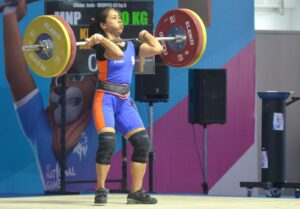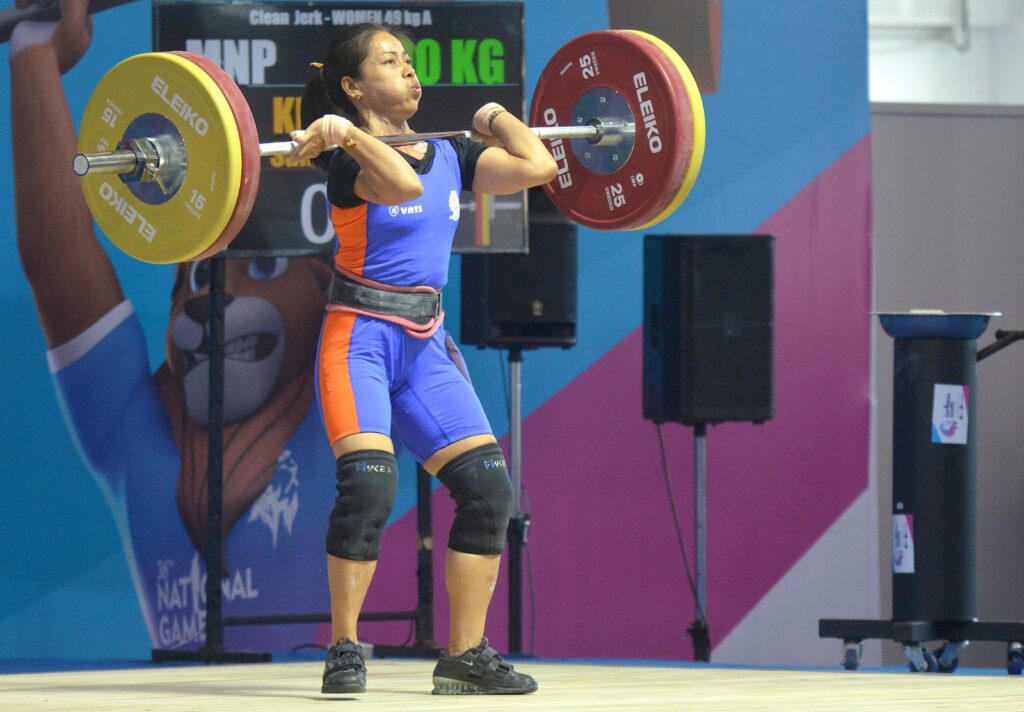
G Rajaraman
Sanjita Chanu, the two-time Commonwealth Games weightlifting gold medalist, could have had her doping-related ban reduced by a year to three years had she chosen to work on a result-management agreement with the National Anti-Doping Agency, rather than make an emotional plea before the National Anti-Doping Disciplinary.
When the Anti-Doping rules presume intentional use of a prohibited non-specified substance and place the onus on the athlete to prove otherwise, Sanjita had no defence. She said she had been very careful about her food and supplementary intake since she was aware of the risks. She denied consuming banned substances and knowledge of how Drostanolone entered her body.
“It appears to be a case of systematic doping where the prohibited substance was used by the athlete; that in the absence of any medical evidence that the athlete has consumed such prohibited substance through adulterated food, supplement or medicine, the only reasonable conclusion that the athlete has intentionally consumed the said prohibited substance to enhance strength and power,” the ADDP order stated.
Sanjita will lose the National Games silver medal she won with a total lift of 187kg, just 4kg less than the winner, Mirabai Chanu, Olympic silver medalist and 2022 Commonwealth Games champion. But at some point, she will probably look back at her decision to ask for a hearing and realise that she could have staged a comeback at 32 years of age rather than a year later.
The 29-year-old may have been better advised to get an agreed decision that would have reduced her ban by a year. However, she decided to contest the positives without any evidence to show how the substance could have entered her body. That seems to have cost her an additional year unlike athletes like Kamalpreet Kaur, Navjeet Kaur Dhillon, Dhanalakshmi Sekar and others.
The WADA Code encourages athletes and anti-doping organisations to secure result-management agreements in case the sanction for a rule violation is four years. It entails reduction by a year when an athlete admits the violation and accepts the period of ineligibility no later than 20 days after receiving notice of an ARDV charge from the anti-doping organisation.
Sanjita tried to draw the attention of the ADDP, chaired by Mr. Chaitanya Mahajan and including Dr. RK Arya and Jagbir Singh, former India hockey captain, to how she had wrestled with a dope allegation earlier as well. But that had no bearing on the case resulting from a positive test at the National Games in Gandhinagar last year.
Truth to tell, Sanjita waited two years for the International Weightlifting Federation to secure the World Anti-Doping Agency’s (WADA) approval to withdraw the doping charge against her after it became clear that the testing documentation was not in keeping with the strict standards laid down by WADA.
Back in January this year, when news of her provisional suspension broke out, she had told PTI that she was unable to understand how the positive had happened. She was pretty sure that the WADA-accredited laboratory had come up with a false positive. Some thoughts of sabotage crossed her mind, but she ruled out that possibility herself.
Sanjita has now become only the seventh weightlifter to be sanctioned for the presence of Drostanolone in her sample. Back in 2010, Gurpreet Singh and Paramjit Kaur tested positive for the synthetic steroid. Gaurav Siddhu and Harbhajan Singh in 2014, Purnima Chanu in 2018 and Mayur Yadav in 2019 precede Sanjita Chanu on that list.
Drostanolone was originally used in treatment of breast cancer, but has made itself known more in the world of doping in sports. Bodybuilders account for as many as 18 of the 30 ADRVs due to this substance recorded on the NADA website. There are some others whose agreed decisions are not listed but have been banned from their sport because of this steroid.
Rakhi Halder, who tested positive in an out-of-competition test in March 2021, was the last elite weightlifter to be handed a ban by the Anti-Doping Disciplinary Panel. Swati Singh, who tested positive for Morphine at the Asian Weightlifting Championships in Ningbo, China, in April 2019 was the last Indian weightlifter to test positive in an international competition.
From the time NADA started hearing cases in 2009, as many as 262 weightlifters were sanctioned before Sanjita, making it the second-most sanctioned Olympic discipline after athletics. At least nine other weightlifters are currently on provisional suspension, making it a major cause for concern and worry creases on the foreheads of the sport’s leaders.
It is not without reason that Sahdev Yadav, the Indian Weightlifting Federation President, had feared that many athletes in his sport would have resorted to doping during the pandemic when testing had come down significantly. He expected many to test positive when competitions resumed, trying to keep a chosen few under watch at the National camp in Patiala.




